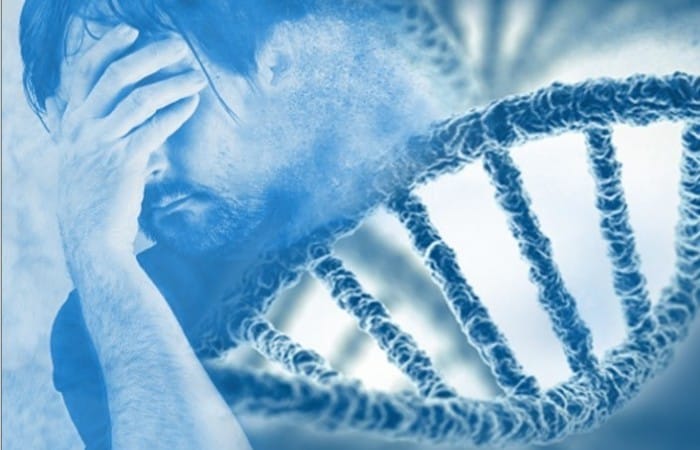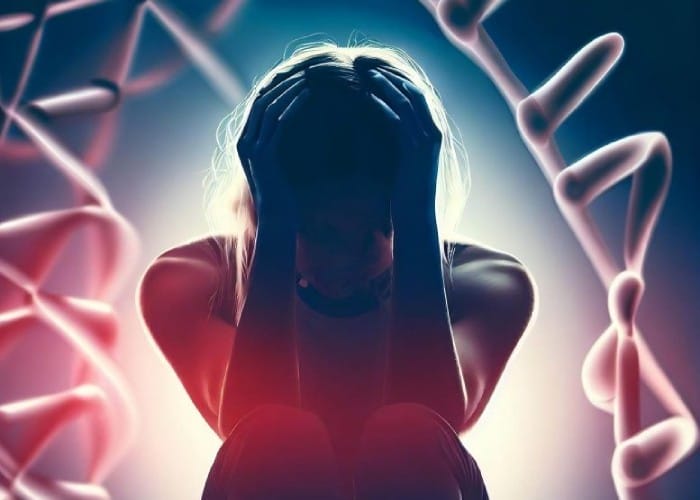
Blog
Depression and genetics
A positive genetic test for depression can, indeed, influence how an individual perceives their emotional state, potentially making them feel more depressed. Depression, like many other mental health disorders, is increasingly understood to have a genetic component.
In a study conducted by Matthew S. Lebowitz and colleagues in 2017, the aim was to investigate whether simply informing individuals that they have a genetic predisposition for depression would make them feel more depressed.
فهرست عناوین
ToggleMatthew S. Lebowitz’s Study on the Genetics of Depression
The researchers conducted an experiment in which one group of participants was told that they were genetically predisposed to depression, while the other group was not given this information. The results showed that the first group, who were informed about their genetic predisposition, reported higher levels of depressive symptoms over the next two weeks compared to the control group.
Since human memories are reconstructed and interpreted through the lens of current beliefs and perceptions, if an individual knows they are genetically prone to depression, they may reinterpret their past experiences through a biased, depressive lens. This cognitive bias can cause them to recall past memories as more negative or depressive, reinforcing the sense of being depressed.

Genetics or Environment
Steven Hein, a prominent cultural psychologist, rejects the hype surrounding DNA tests and calms our misguided concerns about our genes.
He poses the question: “Are you afraid of what might be hidden in your DNA?”
Scientists expect that by 2025, one billion people will have sequenced their genomes through tests. As the cost of these tests decreases, this method may become a standard medical practice. However, Steven Hein, the cultural psychologist, argues that the first thing we do after receiving the results of a DNA test is misinterpret them.
Hein points out that we have become accustomed to media coverage on newly discovered genes linked to “cancer,” “IQ,” or “depression,” which often depict us as passive and powerless. But as Hein explains, many of these claims are overly simplistic and exaggerated interpretations of how DNA functions and affects us.
With a few exceptions, it is a complex combination of experience, environment, and genetics that determines who we are, how we behave, and which diseases we may develop in the future.
Suggested article: Depression and suicide
Acceptance of DNA Testing in Relation to Depression
So, why do we continue to believe that our genes control our destiny? Steven Hein argues that we are psychologically ill-equipped to handle the results of DNA tests. We frequently fall into predictable biases, such as the belief in immutability, essentialism, determinism, and negative pessimism, which shape the way we think about the information we receive.
Hein shares his own research and the results of his genomic sequencing to discuss what your genes really reveal about your health, intelligence, ethnic identity, and family. At the same time, he helps you counter these cognitive traps. His surprising new conclusions about the limitations of genetic engineering and DNA testing challenge conventional thinking and reveal a simple, profound truth: Your genes create life but do not control it.
In general, if individuals are told that their depression has genetic roots, it often leads to harmful consequences, as they may believe they are powerless in fighting and controlling their symptoms.
In the book DNA is not Destiny, it is emphasized that genetics alone does not determine an individual’s life. Psychological phenomena are strongly influenced by factors such as the environment, culture, living conditions, and timing.
Many of our psychological traits are environmental, social, and cultural constructs.
One of the reasons that mental disorders may become more dominant is that individuals may overestimate their genetic and stable nature.
Contrary to earlier beliefs, genes are not the undisputed rulers of diseases and mental disorders, and caution must be exercised when attributing depression and other psychiatric disorders to genetics. This is because, based on genetic evidence of depression, we may rewrite our memories.
In a study conducted by Matthew S. Lebowitz and colleagues in 2018, they examined whether having information and awareness about the role of genetics in depression could help maintain and rebuild an individual’s mood to better manage depression. The article, titled Blue Genes, addresses how negative mood regulation is impacted.

Negative Mood Regulation (Blue Genes Article)
In this experiment, among participants who showed symptoms of depression, a fabricated biochemical test was conducted, which seemingly indicated the genetic risk level of participants for major depression. Participants with a genetic predisposition to depression had significantly less confidence in their ability to cope with depressive symptoms compared to those without such a predisposition. However, a brief intervention that provided education about the uncertain nature of genetic effects on depression completely reduced this negative effect.
Given the clinical significance, patients’ expectations about depression, particularly their pessimism about their ability to overcome symptoms, can be exacerbated by genetic information.
Education and counseling regarding genetic effects might be an important tool to counteract harmful clinical beliefs that can be triggered by genetic test results.
Genetic counselors may be able to assist patients by educating them about the non-deterministic role of biology in depression, thus preventing the weakening of their spirits. However, a short audiovisual intervention seems to be an effective approach for delivering such education.
In general, one of the ways to cope with depression is through education and raising awareness that the role of the environment is as significant, if not more significant, than genetics. In a healthy environment, the likelihood of triggering depression genes and other psychiatric disorders is significantly reduced.
Resources used:
Testing positive for a genetic predisposition to depression magnifies retrospective memory for depressive symptoms.
Matthew S Lebowitz et al. J Consult Clin Psychol. 2017 Nov.
DNA Is Not Destiny: The Remarkable, Completely Misunderstood Relationship Between You and Your Genes
Book by Steven Heine
Blue Genes? Understanding and Mitigating Negative Consequences of Personalized Information about Genetic Risk for Depression
Matthew S Lebowitz et al. J Genet Couns. 2018 Feb.
برای مشاوره رایگان و رزرو وقت (یا اگر تماس گرفتید و قادر به پاسخگویی نبودیم) شماره تماس خود را وارد کنید. ما به زودی با شما تماس می گیریم!



